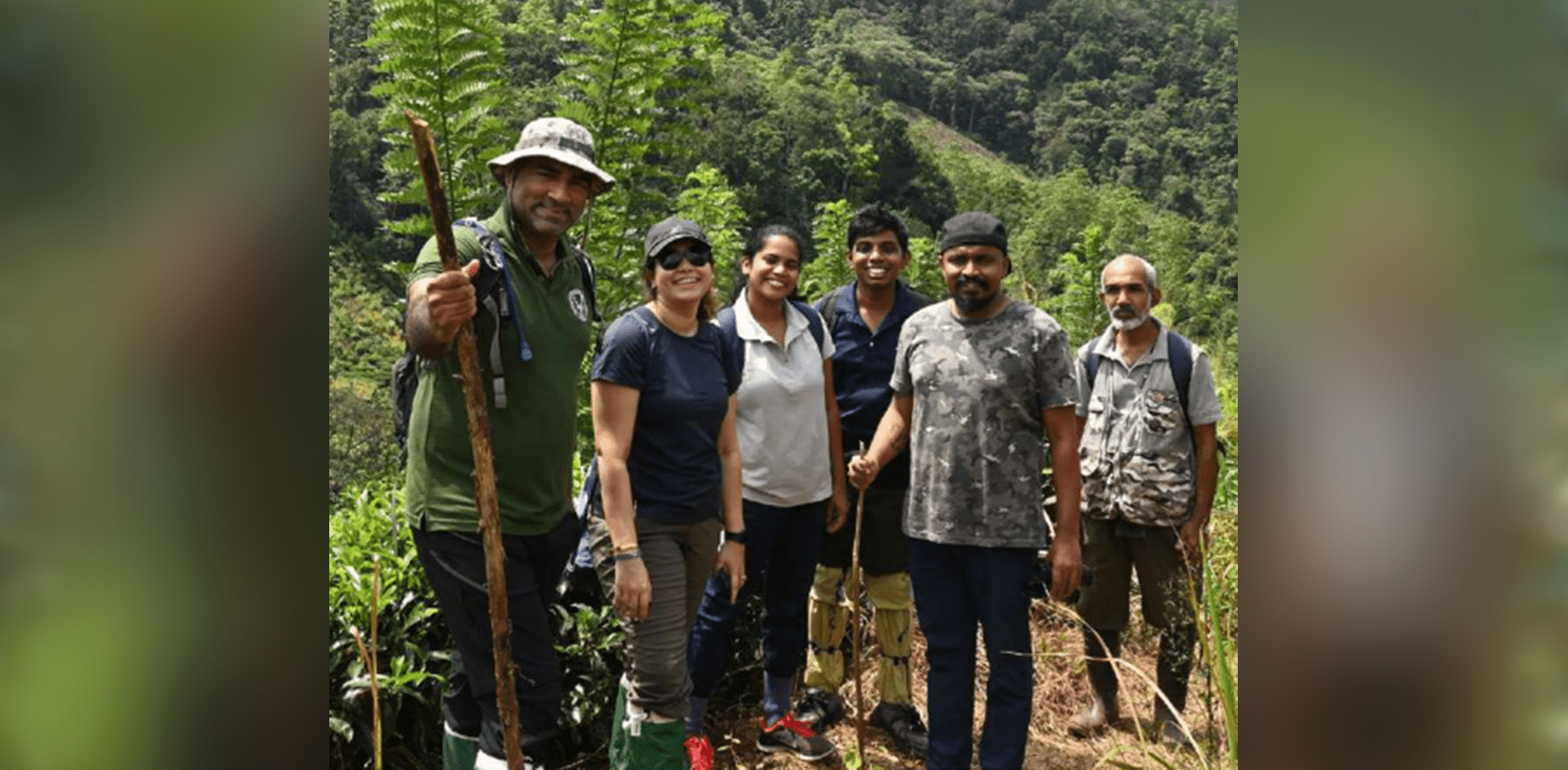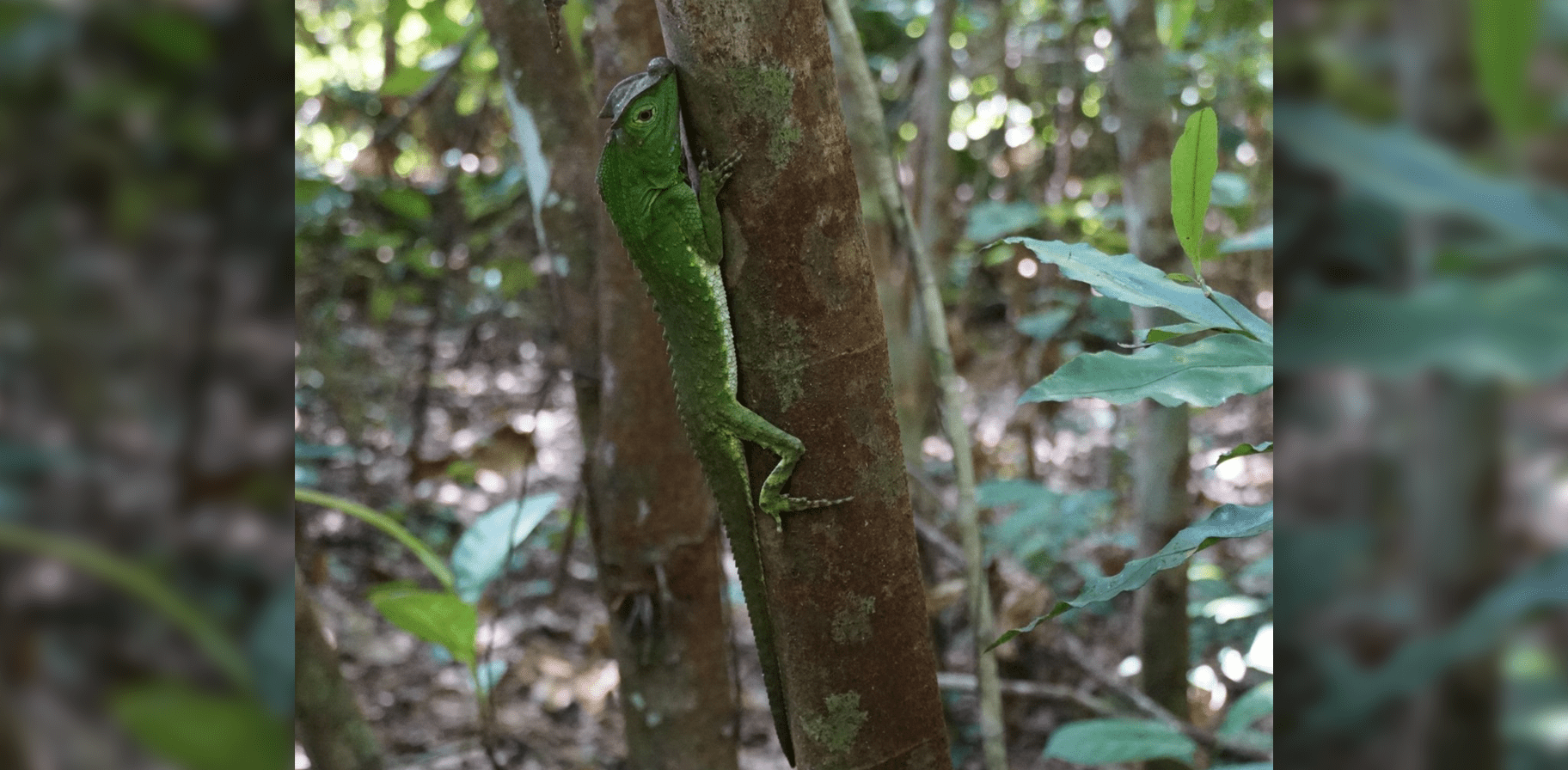
Rooting for Change; The Minuwanella Reforestation Initiative by MAS & WNPS
By Vihanga Balasuriya, Executive- Environmental Sustainability, MAS Capital · 22 Feb 2024
In the lush tropical rainforest region near Maliboda, a transformation is taking place. The Minuwanella Reforestation Initiative by MAS Holdings and the Wildlife and Nature Protection Society (WNPS) through its Preserving Land and Nature (PLANT) initiative, is not just the story of one organization's effort, but a testament to the power of companies and communities working together to make impactful change.
Making sure the habitat survives, is crucial:
The Minuwanella forest patch, nestled nearin the scenic Peak Wilderness in the Sabaragamuwa Province of Sri Lanka, is home to an astounding total of 339 species, 28% of which are endemic to the island. The disruption of Minuwanella's natural harmony has been caused by the commercialization of land for agricultural use. Patches of vibrant forest have become isolated amidst stretches of tea and cinnamon plantations, which hinder the natural movement and genetic flow between species. This fragmentation of forest patches stands as a challenge for conservation efforts.
This project presented us with an intriguing opportunity, as a sustainable apparel manufacturer on a journey to restore biodiversity to 25,000 acres of land. We wanted to explore the solution of establishing an environmental corridor that would not only improve land quality but also strengthen the habitat for all wildlife and plant life to flourish. The goal was threefold; to preserve natural lands, prioritize scientific restoration of degraded land, and enlarge protected areas through the conversion of private land.
Establishing the Green Corridor:
In 2022, MAS Holdings and WNPS PLANT teamed up to initiate a Reforestation Program to create corridors that connect previously disconnected patches, strengthening the resilience of Minuwanella's environment (see www.plantsl.org for more info on the location).
We took no shortcuts, focusing on a scientific approach to the restoration. The plan was to rejuvenate 3.75 acres between 2022 and 2023, and a further 7.5 acres by 2025. In our pursuit, we went beyond, planting native species in place of invasives that had overtaken the natural flora.
These practices have already brought about significant change, with our routine on-site observations unveiling a notable increase in the Hump-nosed lizard population, an endemic species to our land. Our efforts have also sparked promising signs of recovery among other vital species like butterflies and frogs, serving as a beacon of hope for our environment.
And we didn't do it alone. Community engagement was key during Phase 1, with locals pitching in for planting and site prep. After all, conservation is a team sport, and we believe that involving the community creates a ripple effect of awareness and appreciation for our natural treasures.
As a sustainability-driven apparel manufacturer, safeguarding biodiversity is woven into the blueprint of MAS’ Plan for Change, making our contribution to this project more meaningful.
With 'The Reforestation Program' in full swing, we're optimistic about the transformative effects it will have on the ecosystem.










